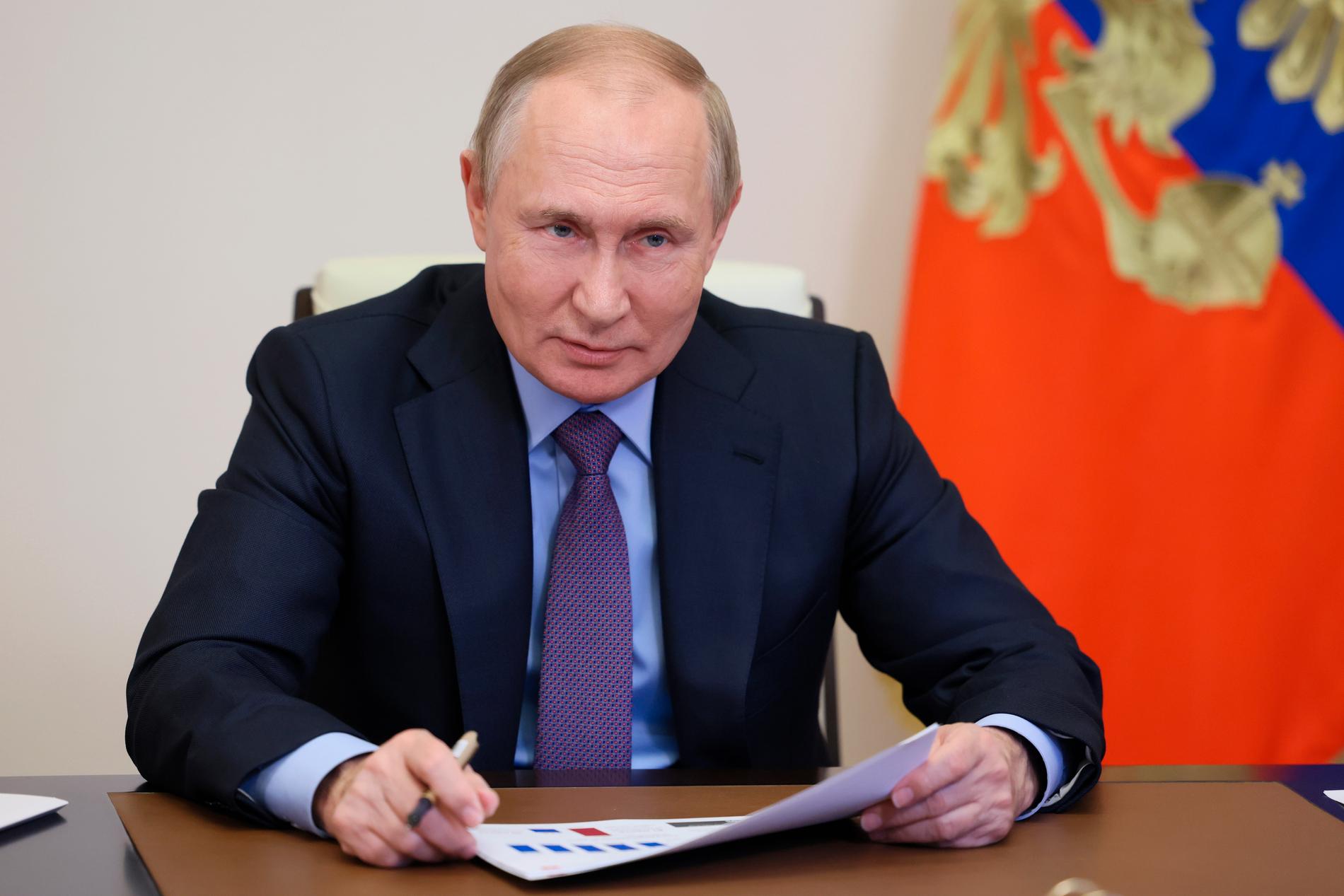
Wolfgang Hansson
Putin can win the war because the Western leaders missed an important point
Published: Today 15.03
Updated: Less than 3 hours ago
This is a commenting text. Analysis and positions are the writer's.
COLUMNISTS
There is a lot of talk about tanks and warplanes to Ukraine, but the Western leaders seem to have forgotten a very important ingredient in the war.
If NATO does not quickly increase its production of ammunition, Putin may win because Ukraine has nothing to fire from all the modern weapons supplied by the West.
In contrast to the NATO countries, Russia has long put its arms industry on a war footing. The weapons factories work in three shifts, even though the sanctions have caused a shortage of certain components.
From the beginning, few had expected that the war would last so long. Neither the West nor Russia. But while the Russians seem to have concluded that the war will last a long time, that realization has not similarly taken root in the minds of NATO leaders.
The ammo shortage warnings have been around for a long time and it's always hard to separate the well-reasoned cries of desperation from those about stockpiling mountains of gear "just in case".
But this week NATO chief Jens Stoltenberg himself went out and warned of shortages of important ammunition.
- Even if new orders for coarse-caliber ammunition were placed today, it would take 28 months before it can be delivered, claims Stoltenberg.
Because while Europe's leaders - and also Ukraine's- have been busy discussing how many tanks, how much anti-aircraft defense and whether they would possibly also deliver fighter jets, few seem to have thought that these weapons also require ammunition.
Obsolete warfare
After the fall of the Berlin Wall in 1989 and the collapse of the Soviet Union two years later, many countries in the West cut their defense budgets sharply. Not only Sweden more or less dismantled its defenses.
In connection with that change, the belief was also founded that conventional warfare à la World War II, where large armies stand against each other, was something that belonged to history. Modern warfare was about small mobile units, cyber warfare, asymmetric warfare and other things.
That attitude gained even more ground after the terrorist attacks in the United States on September 11, 2001. When hunting terrorists, neither artillery pieces nor anti-tank robots are required.
The consequence was that the weapons industries in the Western world changed. If there are no orders for the type of ammunition used in old-fashioned warfare, the companies discontinue it.
Then it is not just a matter of pressing the button to start mass production again many years later.
So far, neither the US nor the EU has wanted to put their industry on a war footing. Perhaps that is what is required to quickly produce the amount of ammunition that Ukraine needs. But also to replace the ammunition that is now taken out of the Western stockpiles and sent to Ukraine.
The West's lack of ammunition could lead to Russia winning the war. Photo: Mikhail Klimentyev / AP
Poor capacity
After all, the NATO countries do not want to suddenly be without opportunities to defend themselves in the event of an attack. Although at the moment such does not feel very likely.
Already today, both Russia and Ukraine are said to be suffering from such a shortage of ammunition that they have begun to ration their attacks. Yet they dispose of ammunition much faster than it can be replaced.
The United States has so far delivered one million artillery shells of the standard 155 mm model to Ukraine. But the US production capacity is currently maxed out at 93,000 shells per year. Even if the US could quickly increase production to some extent, the deficit will be huge.
Today, Ukraine is said to fire an average of 4,800 155mm artillery shells per day. That's more than the US produces in a month. The Javelin anti-tank robot has done considerable damage to the Russian troops. The US has so far sent 8,500 Javelins to Ukraine. That's a third of America's inventory. The American capacity to produce new ones is 1,000 per year.
Avoid at all costs
Negotiations are currently underway in a number of NATO countries with various arms manufacturers to rapidly increase production capacity. But as long as the contracts are not signed, the arms manufacturers do not make the necessary investments.
It is easy to imagine what would happen if Russia launched a new offensive along several fronts while Ukraine ran out of ammunition or was forced to severely ration it.
- Ammunition is more important than all symbolic discussions about weapons, says Nico Lange, military expert at the Munich security conference to be held this weekend and former chief of staff at the German Ministry of Defense, to the German public service company Deutsche Welle.
- The Russian warfare with attacks along many front sections can only succeed if Ukraine runs out of ammunition. It must be avoided at all costs.
Many experts believe that the West should have realized the need for a sharp increase in ammunition capacity much earlier.
It would be an embarrassing and dangerous security policy blunder to say the least if Putin can win the war because the West fails to produce enough ammunition for Ukrain

Inga kommentarer:
Skicka en kommentar